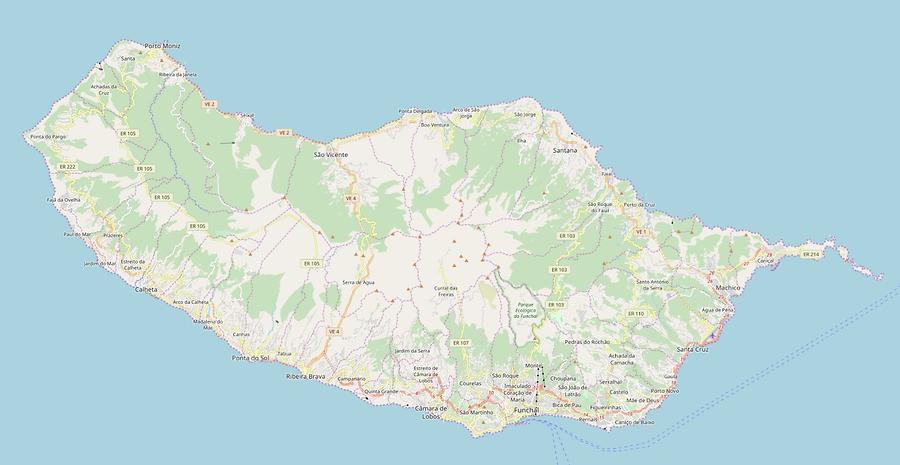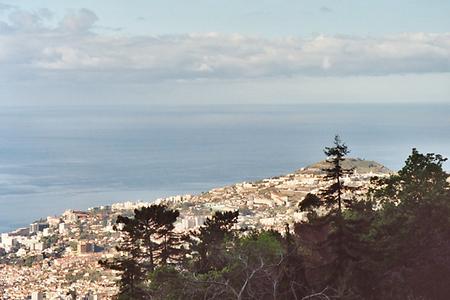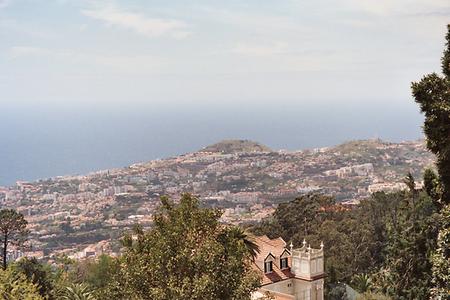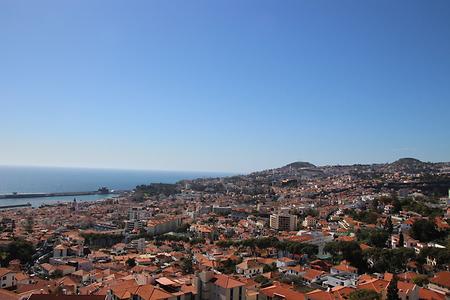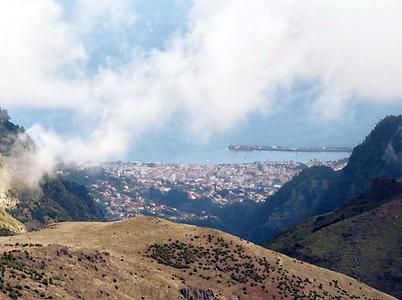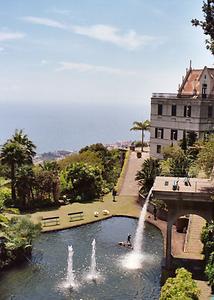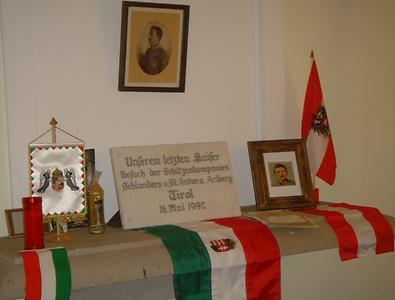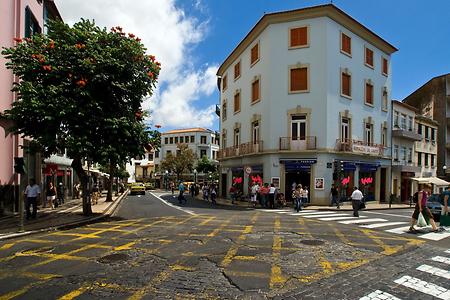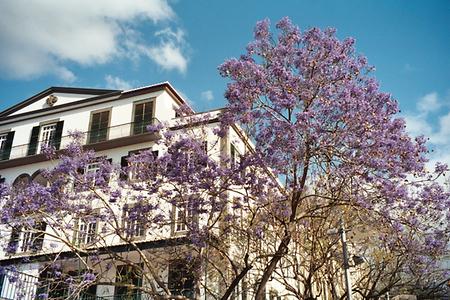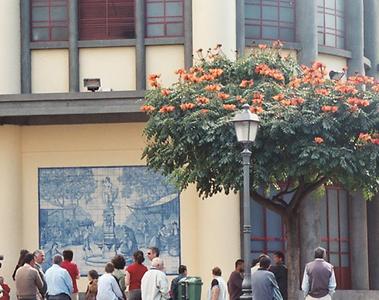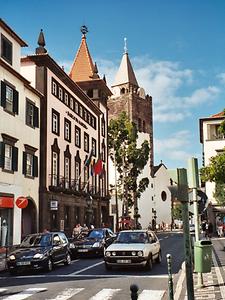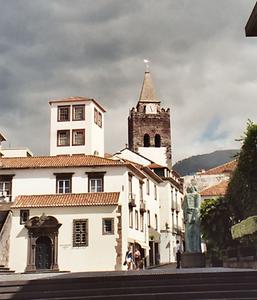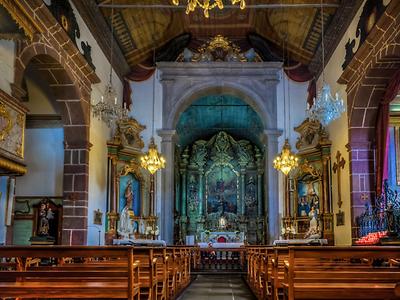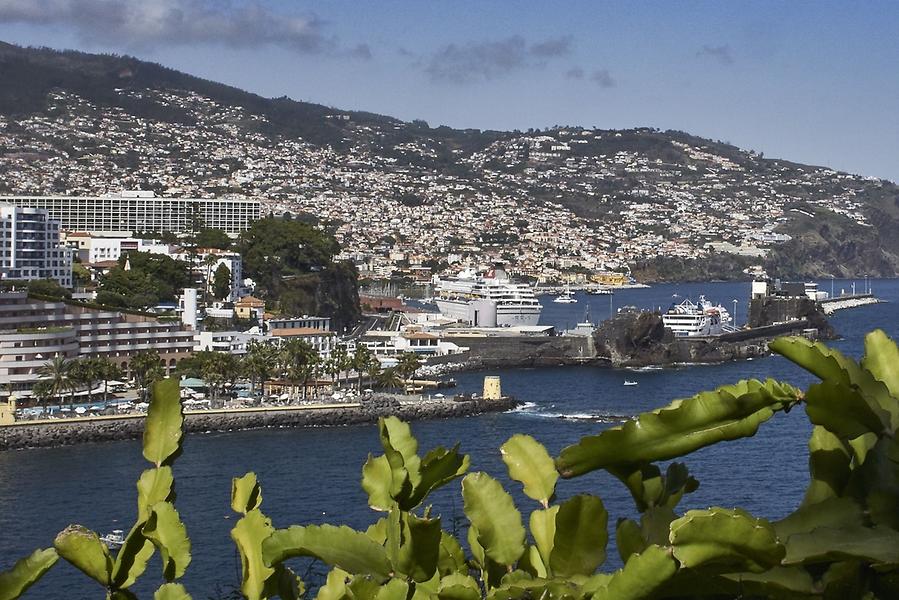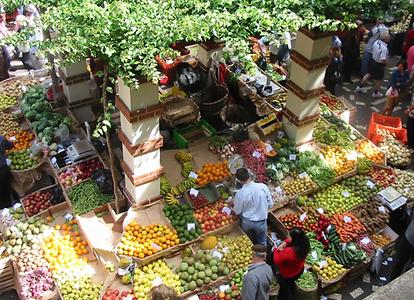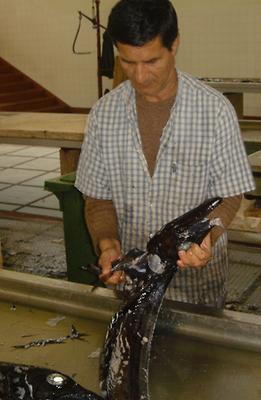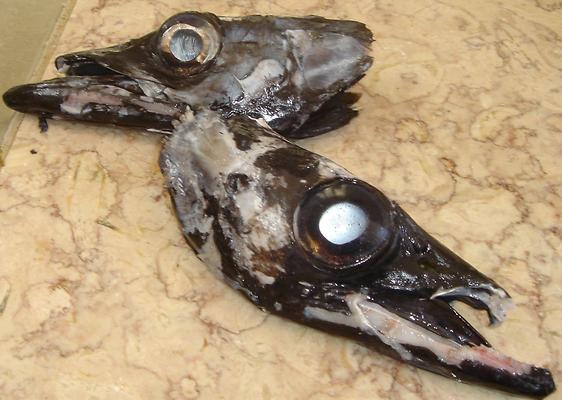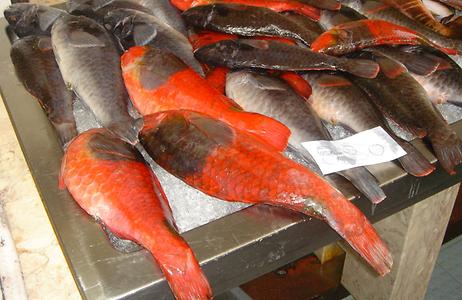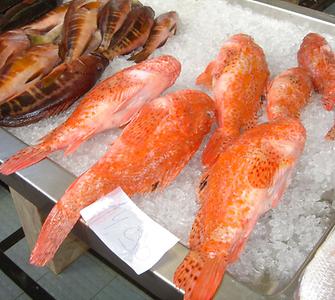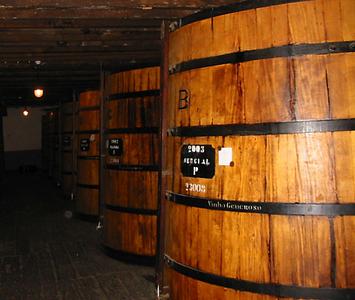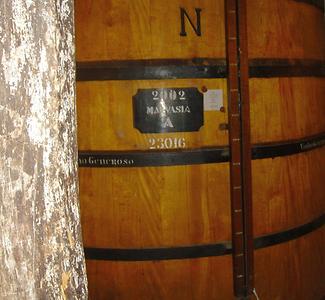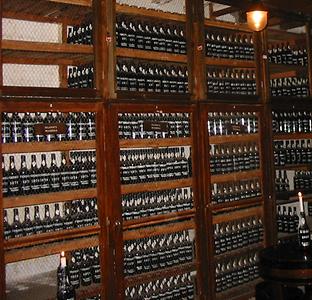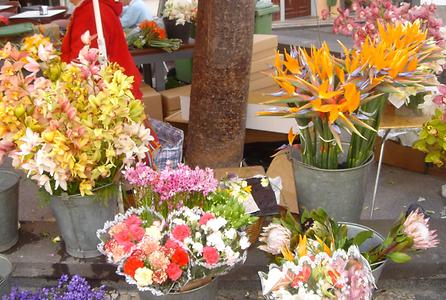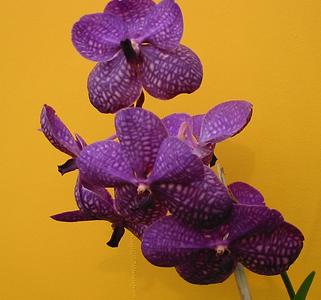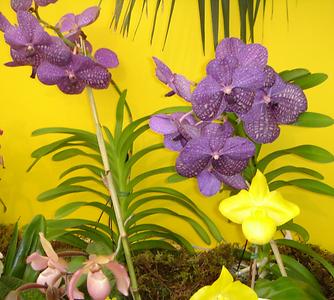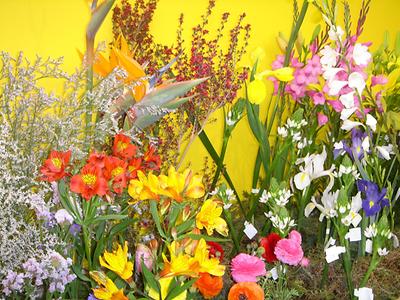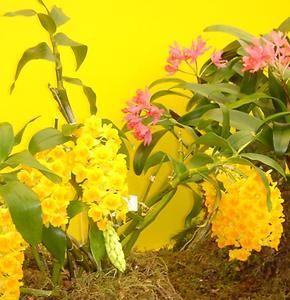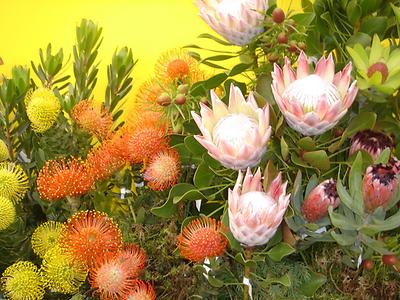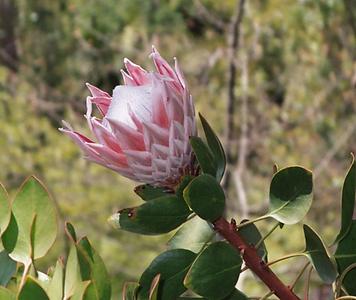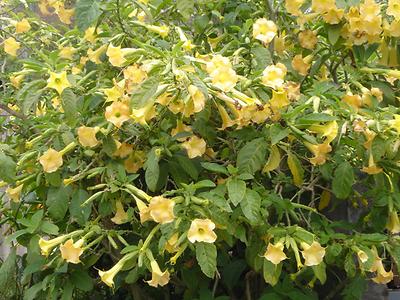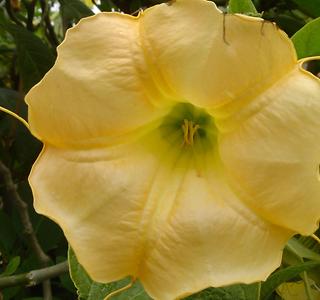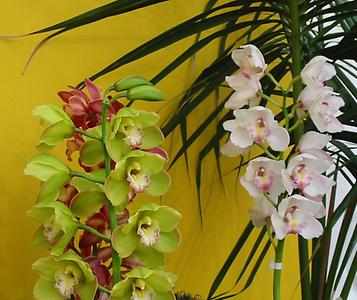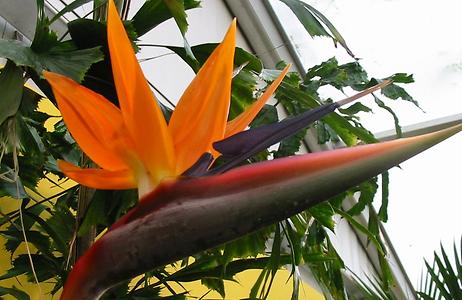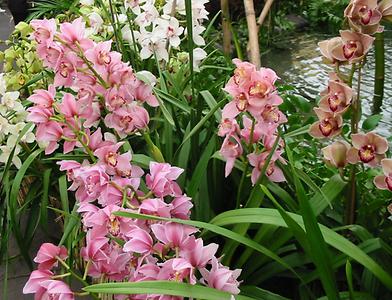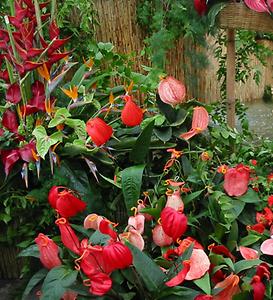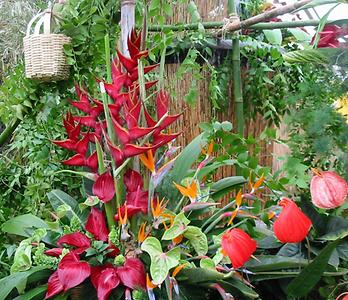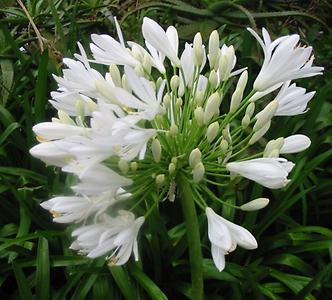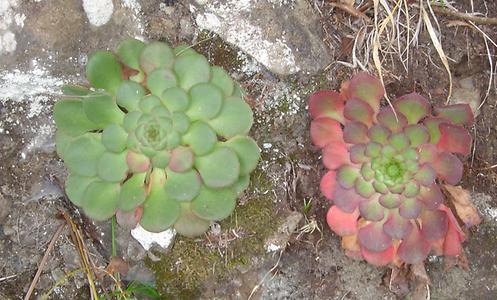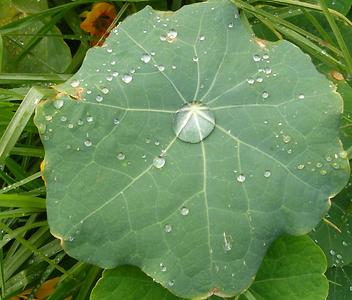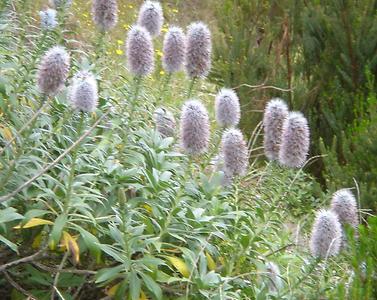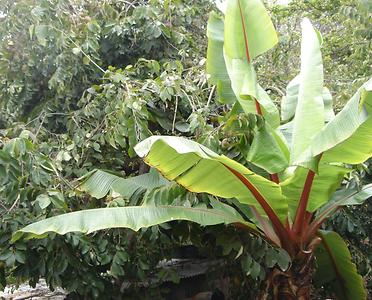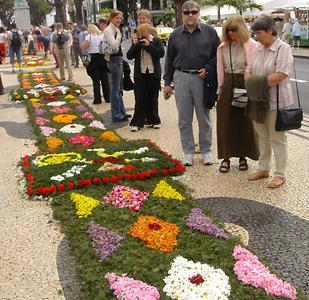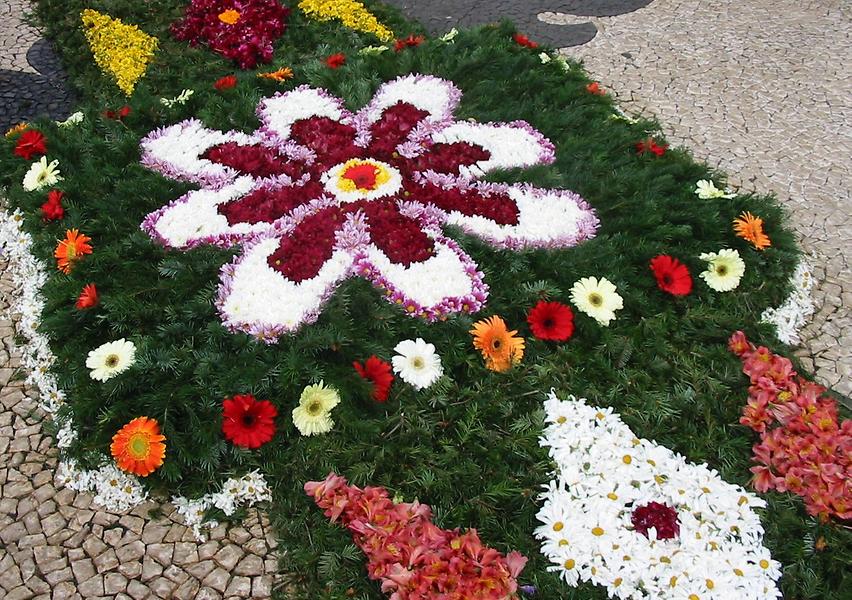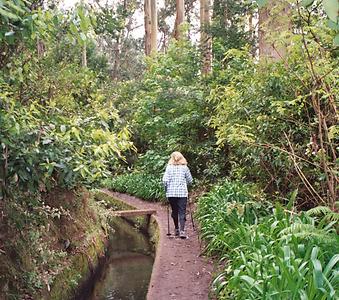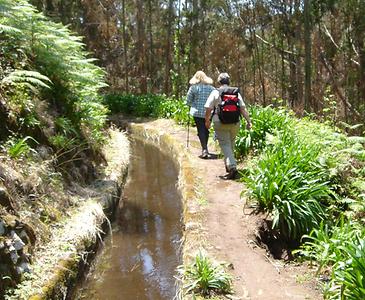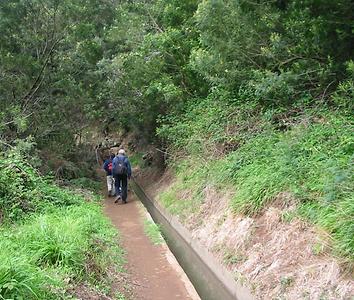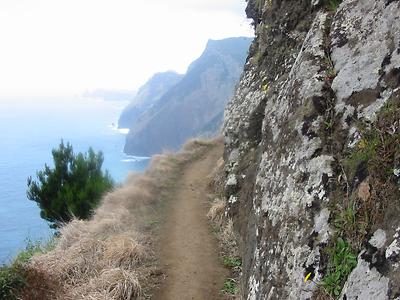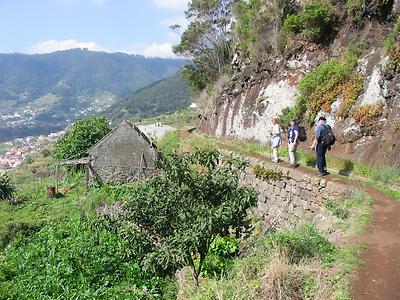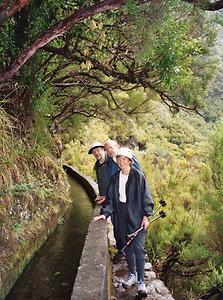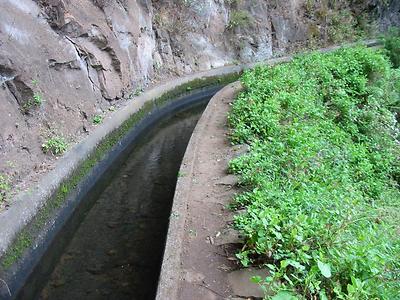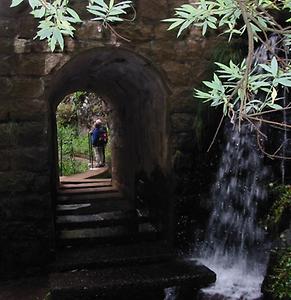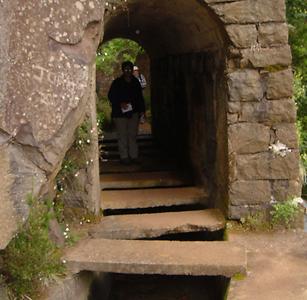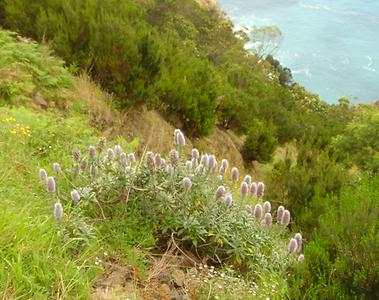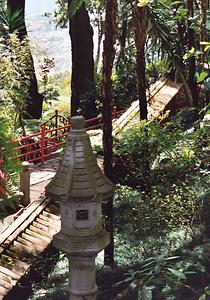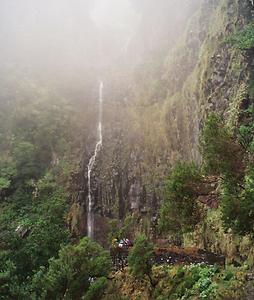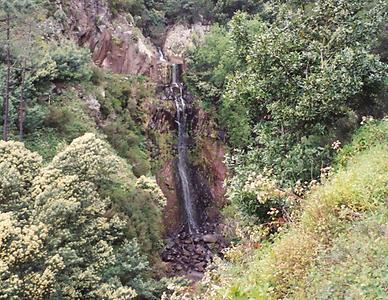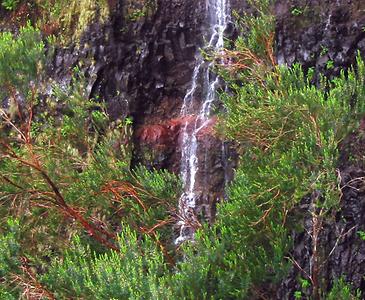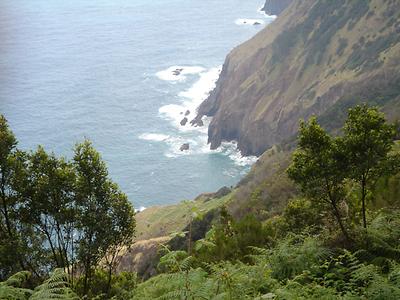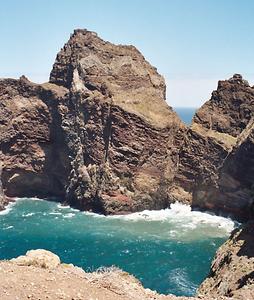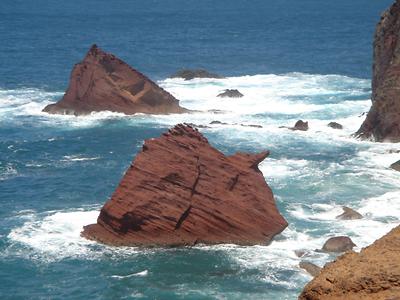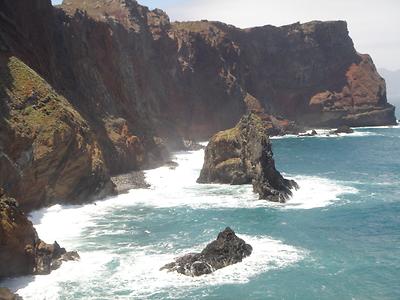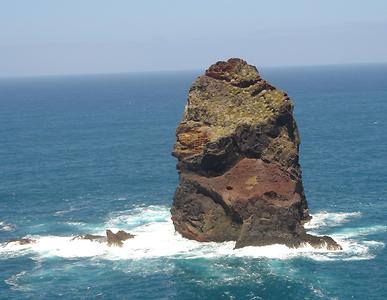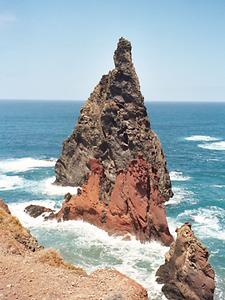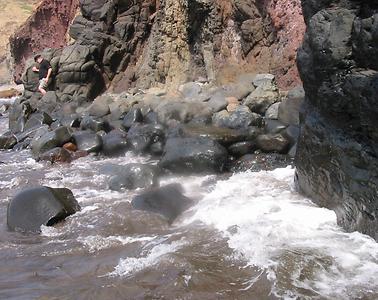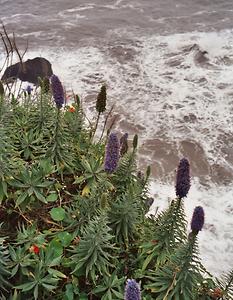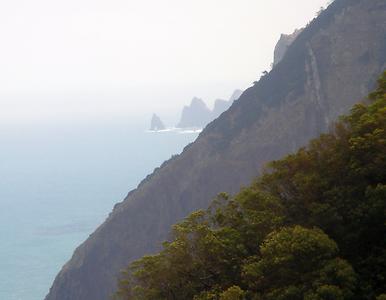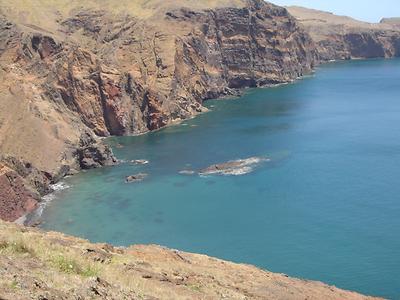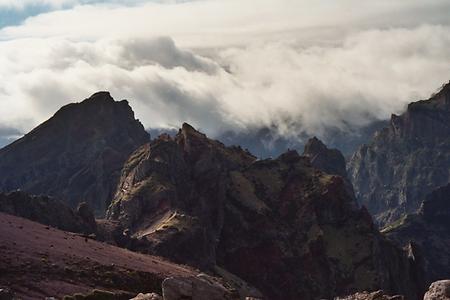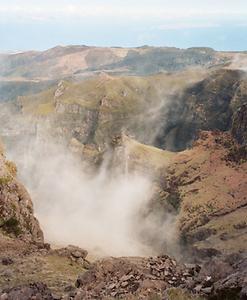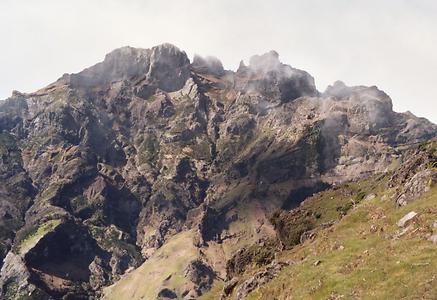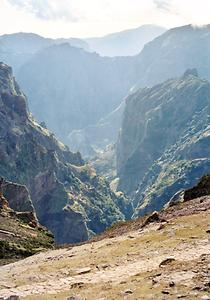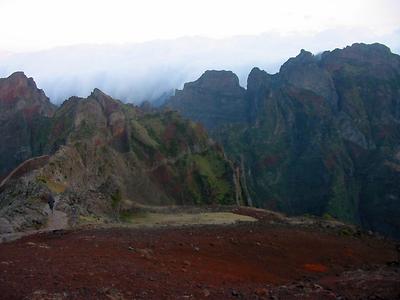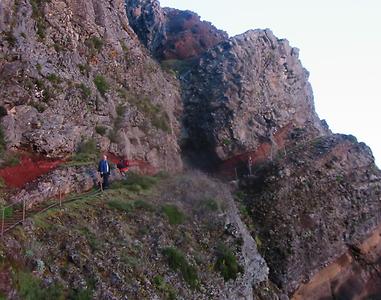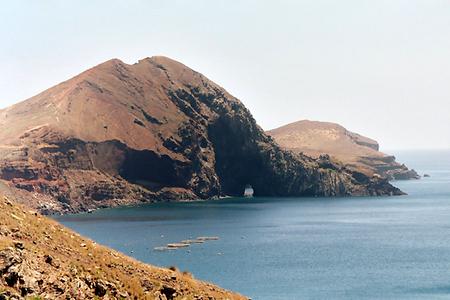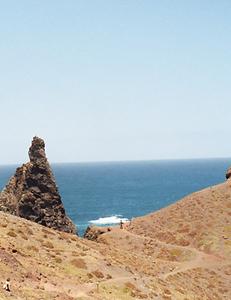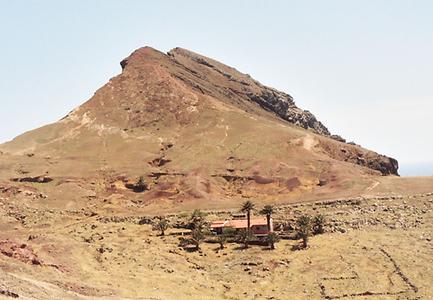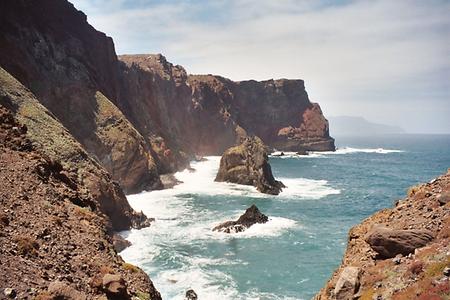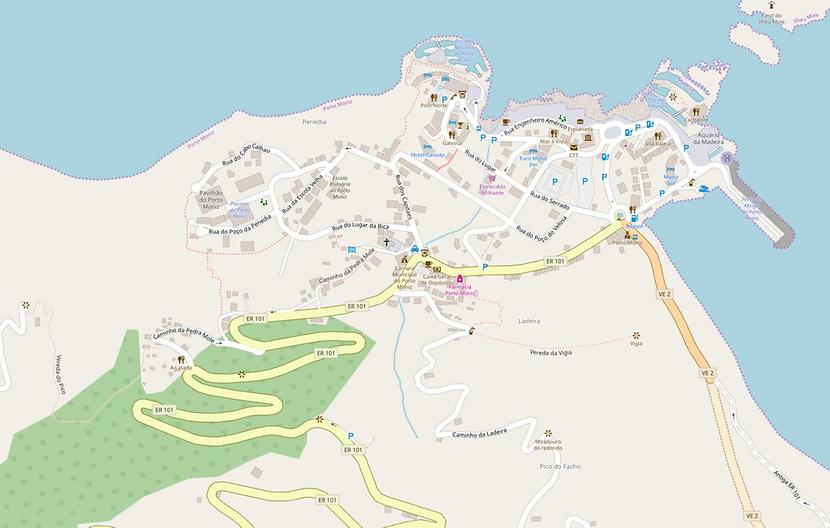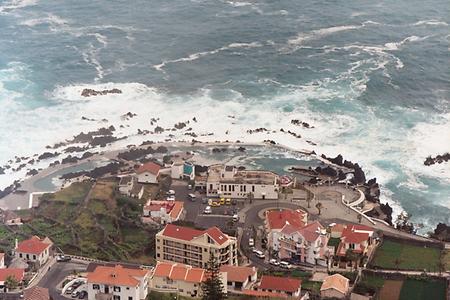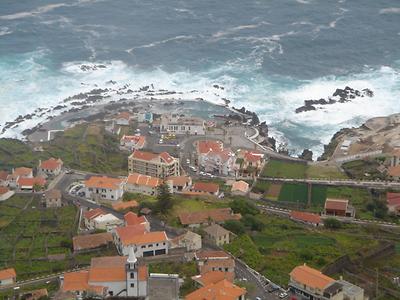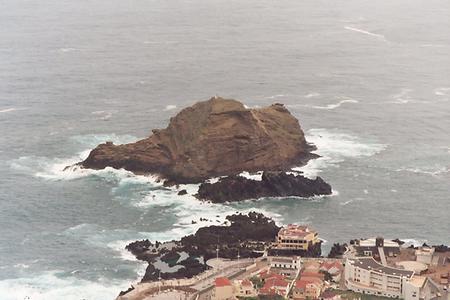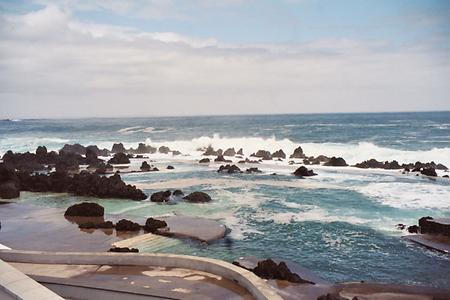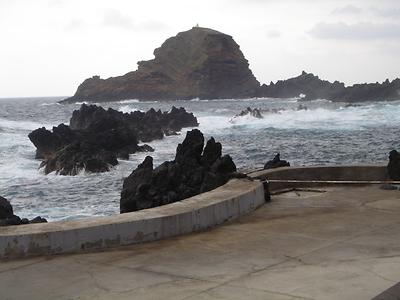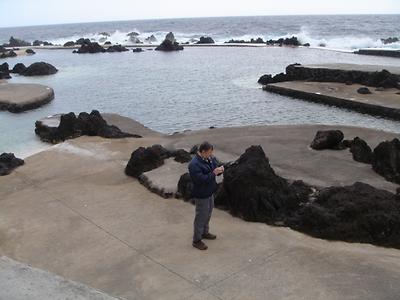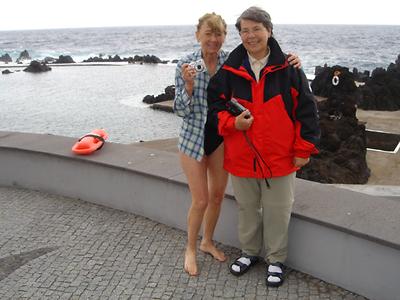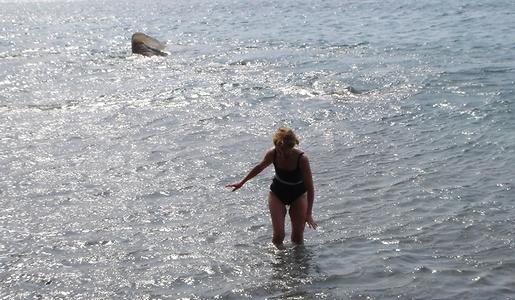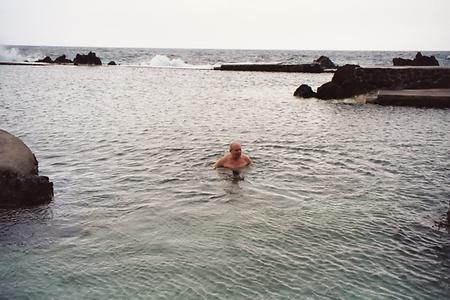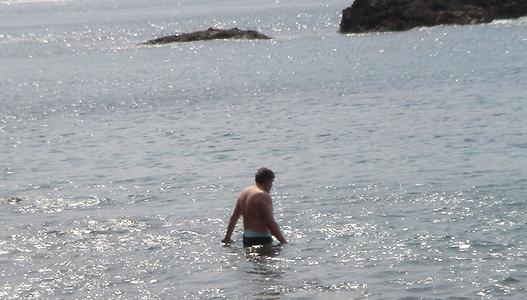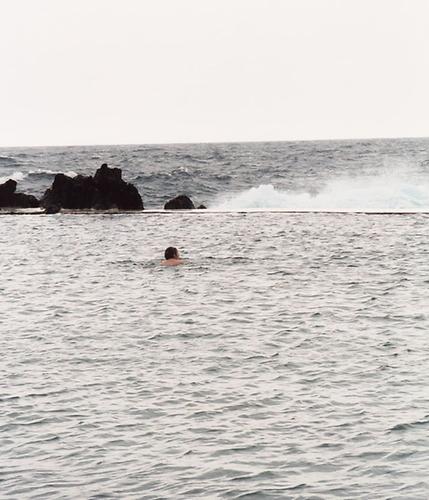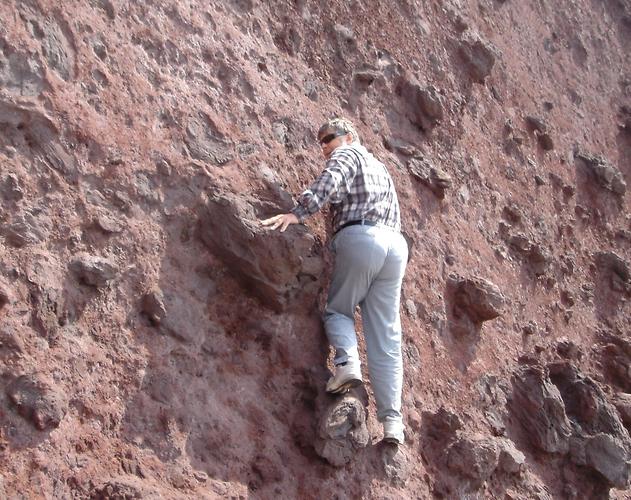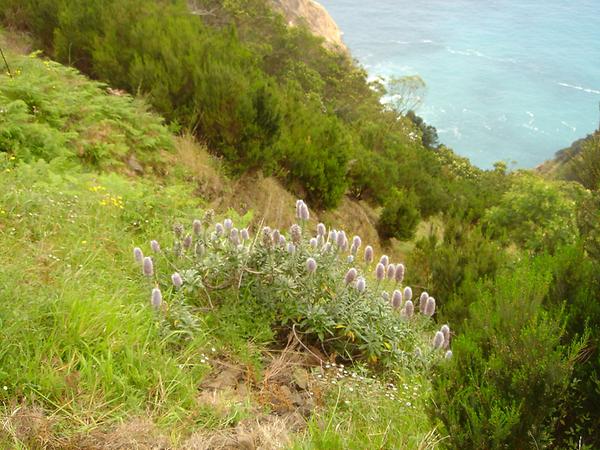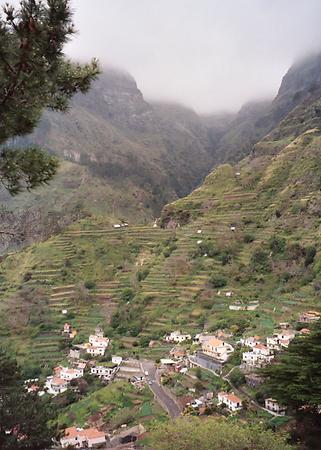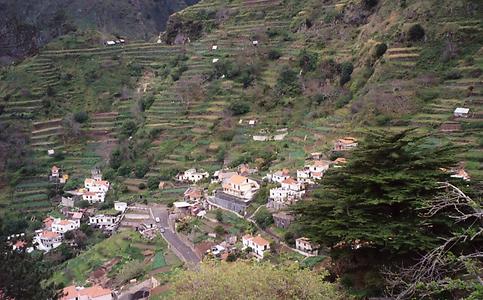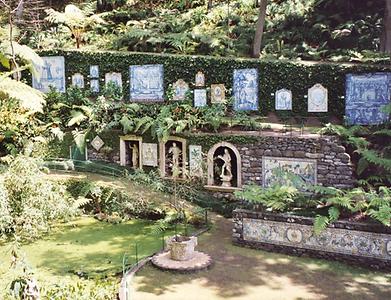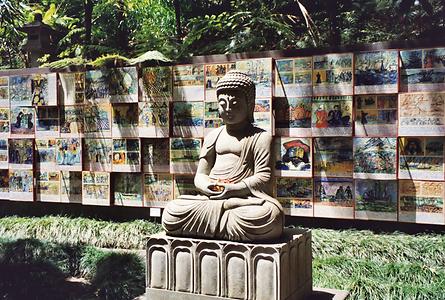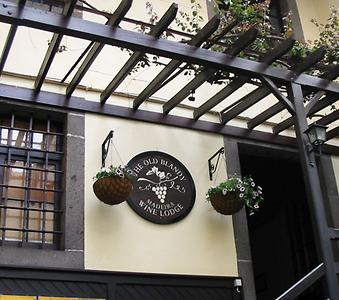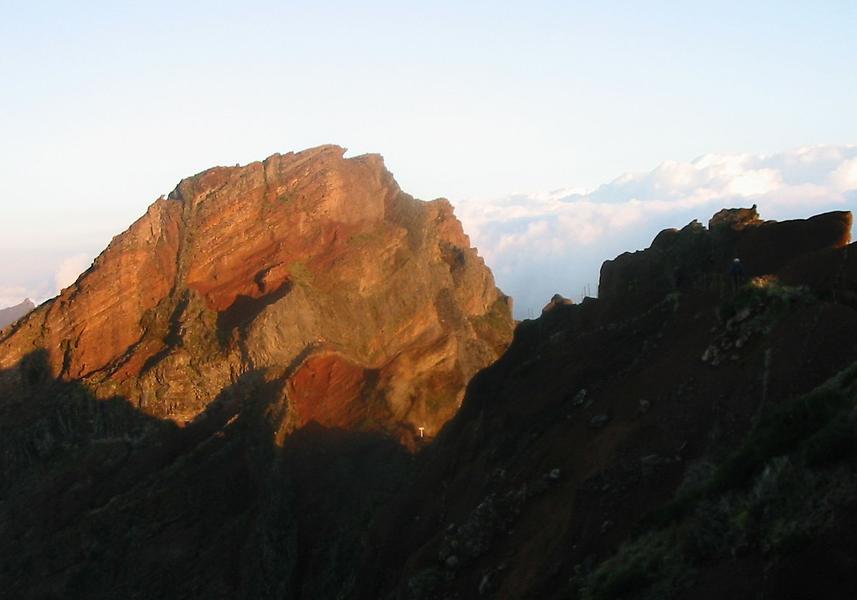Personal report on Madeira (2004)#
by H. Maurer
Note: All pictures unless noted otherwise in the captions were taken by myself or my wife. They can be used freely, but we appreciate that the source (austria-forum.org or global-geography.org) is mentioned.
Introduction#
My wife Ursula and I made a trip to Madeira with two of our best friends from Canada, Bianca and Norbert in April 2004. Madeira was and is very much a tourist destination: With a population of about 300.000 (with little change) they have today 1,5 million visitors a year, many (like us) coming by air (1.5 hours westward from Lisbon) or by cruise ship.The weather (at a latitude of 32° N) is sort of mediterranian and quite nice the whole year. There are many, but not abundantly many nice bays and beaches, but the (especially in the North) heavy forested rugged mountains often with sheer drops to the sea provide impressive sights and surprisingly many easy hikes.
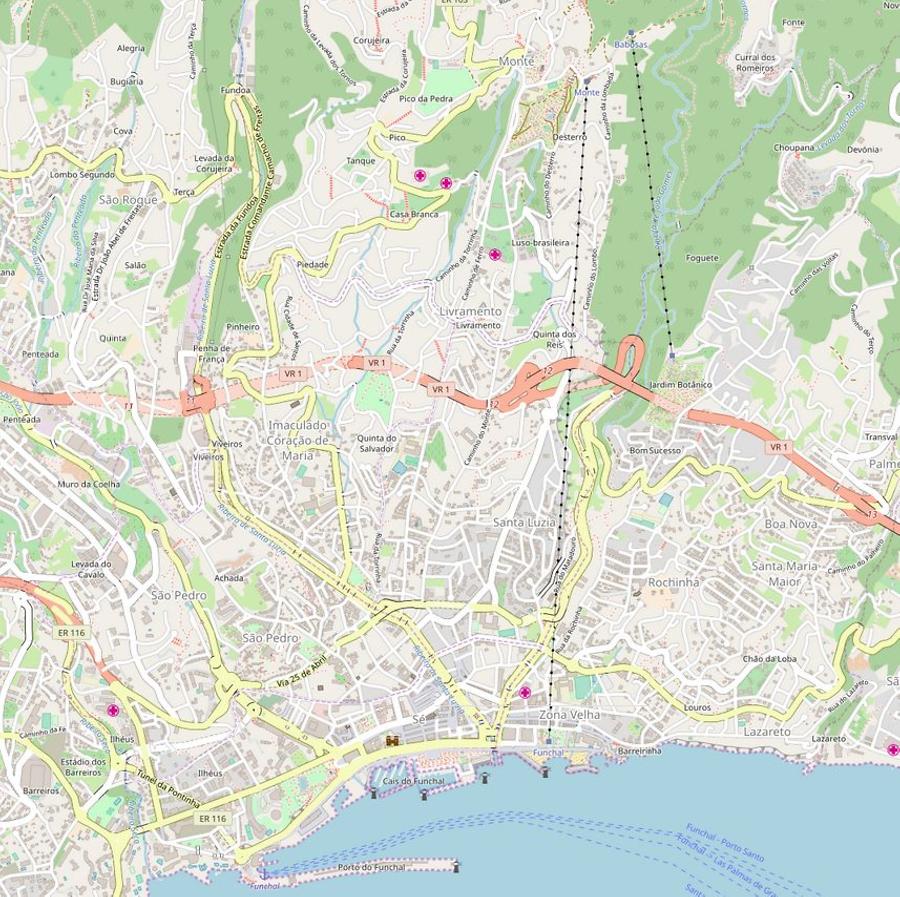
We had booked into Quinta do Monte: A beautiful hotel, located about 600 m above the capital city Funchal, surrounded by an Extraordinary garden, only a few hundred meters away from Gondola that connects ‘Monte’ with Funchal proper. It is also just meters away from the church in which the last Austrian emperor Karl I is buried: he went into exile in 1918 to Madeira, and died there 1923. Of his 6 children, his oldest son Otto von Habsburg (an old man then) was still active in European politics, then. He died 2011. His oldest son Karl Habsburg-Lothringen is now head of the House of Habsburg-Lorraine.
Near hotel and in Funchal#
Food and flowers in and near Funchal#
Next day we enjoy seeing unusual fruits and fish, like anona (sugar apple: size of apple, basically round, but with polyhedron-shaped flat ‘surface panels’, soft, white, sweet inside and in season at this point in time) or the black local fish, and a sea of flowers. We also enjoy our first local meals. The main fish-speciality of the island is the ‚schwarzer Degenfisch’, scabbard-fish (engl.), locally called Estada; it lives between 200 and 800 m deep, is caught on lines often measured in kilometers, and when pulled up does not survive decompression! It has huge eyes, is black, longish (like a moraine eel), but below its black skin it has soft white meat. Other food specialities are a kind of lobster and certain see-snails (but they were not in season.)Of course the Portuguese influence is quite noticeable, with things like bacalao (bakalhau, salted cod), feijojada Brazilian style (i.e. including Farofa, slices of oranges, Molho de Pimenta- a sharp peppersauce- and of course Batida), Arcoa (bread-soup with poached eggs and herbs), or a tomato-onion soup, again with poached eggs. Madeira wine comes in many varieties: both red and white, usually sweet, but some dry versions also exist. Poncha is the Madeira version of Caiparinha: sugar-cane brandy, sugar, honey, lemon and orange juice. Sugar-cane brandy is also the basis of other drinks, like the one with cooked and mashed chestnuts, etc.
Hiking along levadas and waterfalls#
Mountains and sea in the Western Part of Madeira#
The island is dryer in the SE with a number of nice sandy bays#
Here the weather was, when we visited, as usual, warm and beautiful. This part of the island is much drier. We park at end of road, and take the 1.5 hour walk to the end of the peninsula, with spectacular views down the cliffs, particularly to the North: but the island narrows here to a few hundred meters, so you have views to both sides, and also to the East where the island ends in a lighthouse. This walk is very worthwhile, and there are some spots that are clearly accessible and suitable for swimming, so we to return here another day for just that: swimming. On the way back we find what will turn into our favorite Espada place: delicious fish with ‘patata murro’: salt-crusted, unpeeled, young, small potatoes: delicious combination.
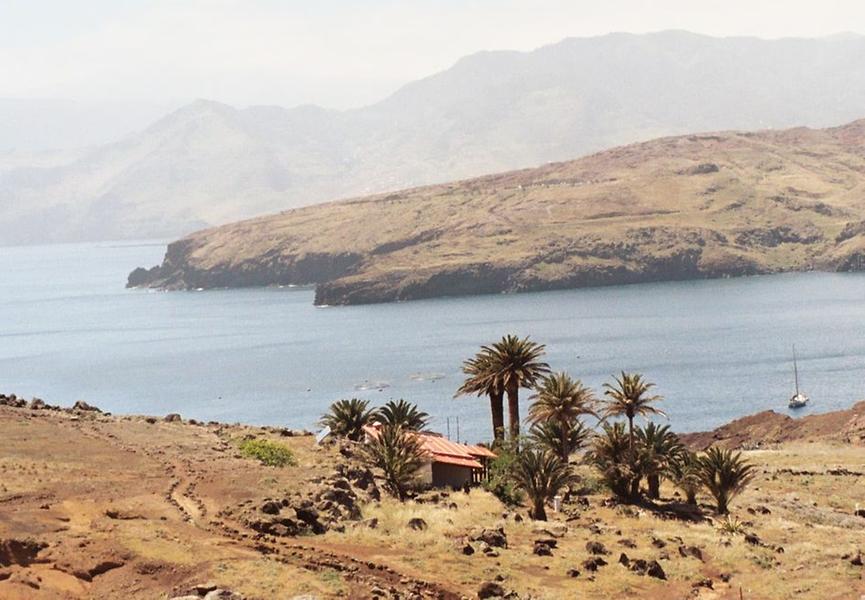
The northermost point of the island#
The northernmost point of Madeira is also quie in the West and can oly be reached by driving over them mountaisn and eventuellly looping down to the sea as the map shows.Its main attration is a "natural swimming pool". It is a lagoon sheltered from the sea by a chain of rocks, low enough that the waves spill over, providing a fairly gentle salt-water swimming pool with continuous supply of water from the ocean.
Unfortunately, we drive in pouring rain to Porto Moniz, and take a swim in the sea-water pools: Bianca, Norbert and I are probably the only ones doing this that day, and we are watched by many tourists who think we are crazy: the air and wind are colder than the water, but we would not have minded a hot shower afterwards!
We also visit the most Western spot on the island, with a lighthouse and then go on an easy levada hike.
Highlight is that Norbert and I manage a scramble upstream a small canyon to two tiny waterfalls.
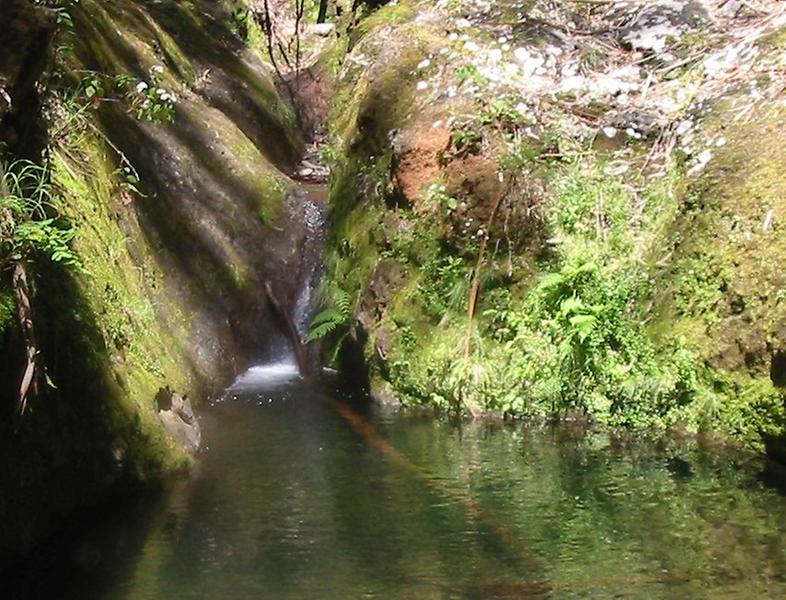
A few more impressions #
Nontrival comments#
One thing that occurred to me is how much money is pumped into the island by the EU, most evident through the amazing amounts of (four lane) tunnels an roads on this mountainous and rugged island in all stages of completion: some 200 km tunnels on an island with 300.000 inhabitants and whose circumference is not more than 150 km! In Austria, with 8 million inhabitants important tunnels are still missing!That the EU is going amok seems to be quite unfair… and is in the process destroying some of the beauty of Madeira, making formerly reclusive places now easy to visit by swarms of tourists. So I am now calling “Madeira, an Island that has turned into Emmental cheese”, because of the holes everywhere. Within two years every point on the island will be reachable within one hour or so from Funchal! My opinion: All of the island except for Funchal will suffer, all activities will be concentrated in Funchal, many people will commute to Funchal for work: many hotels in other parts will have to close. The immense tunnel and road system will ruin many restaurants along the roads that lived off tourists!
The once famous "valley of the nuns", an escape place for nuns that originally could only be reached by a three hour difficult hike through a narrow canjon. Then roads crossing the mountains reduced the time a bit, two tunnels built a few years later did so further dramatically. Now it can be reached from the coast via a road follwoing the canjon in some 15 minutes. From a quiet and isolated charming village it has now turned into a tourist attractions with souvenirs not made in Europe.
